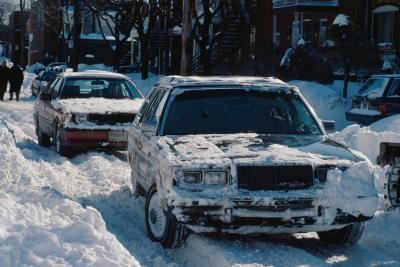
Cold weather can shut down a lot of things, including your car. If you do not take steps beforehand to protect your vehicle from the weather, the cold can make cranking your car a hassle.
Colder weather affects both the battery and the oil inside the car. The battery stores chemical energy and releases it as electricity when the key is turned in the ignition. Cold weather reduces the battery's output to the engine by slowing its chemical reaction. Cold also causes oil to thicken, making it harder for the oil to flow between engine parts when the car is being started.
A car's battery may not have a high enough cold cranking amps (CCA) rating for especially cold weather. The CCA rating describes a battery's ability to start the car's engine in cold weather. A battery with a higher CCA rating has greater starting power.
Oil viscosity, or thickness, in cold weather is expressed by a number which is often followed by a "W," which stands for "winter." For example, with 5W-30 motor oil, the 5 represents the oil's viscosity when cold, and the 30 represents the viscosity when hot. Thicker motor oils have a higher number. Which viscosity of motor oil to use depends on both the weather and the guidelines of the car manufacturer.